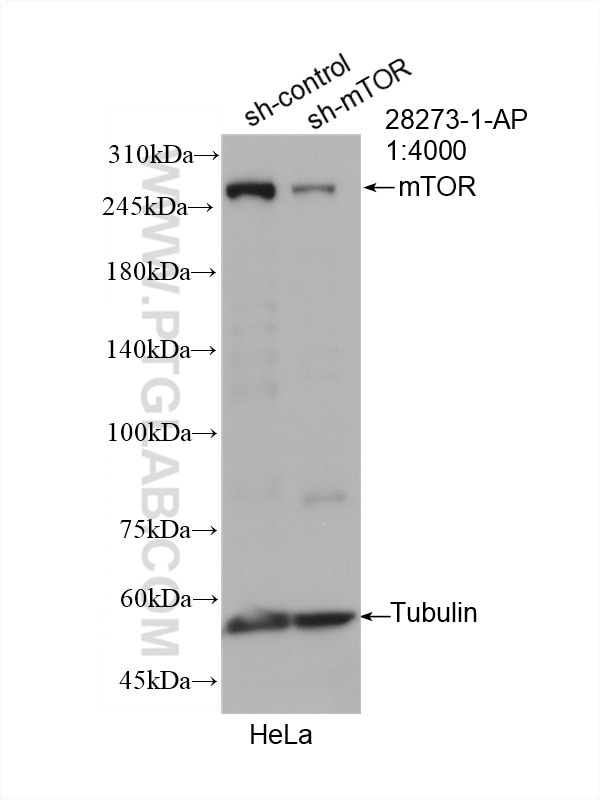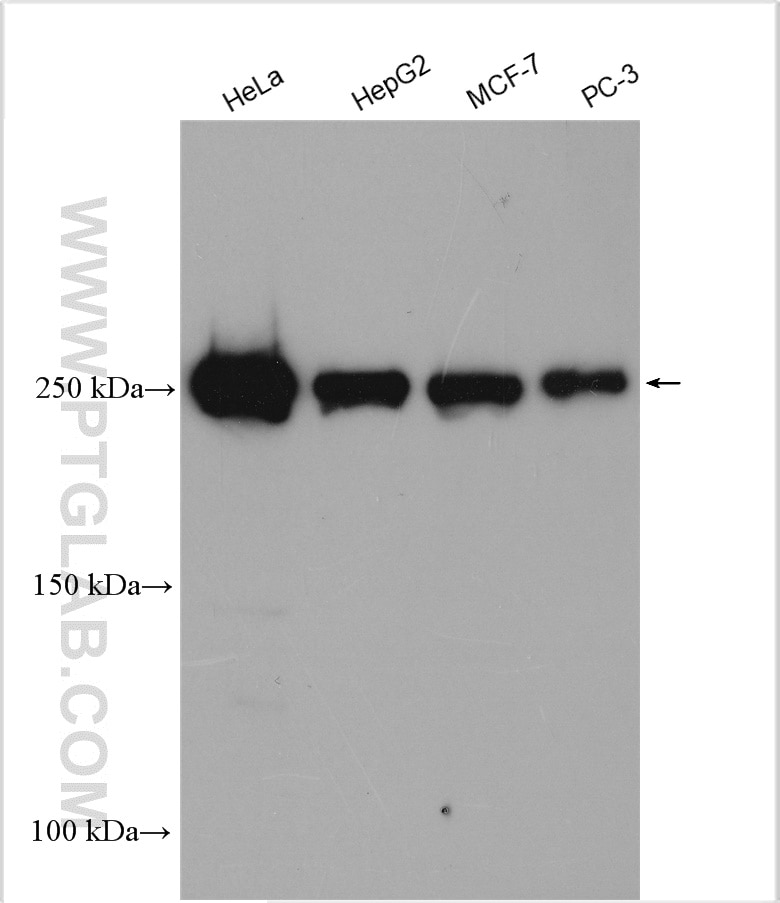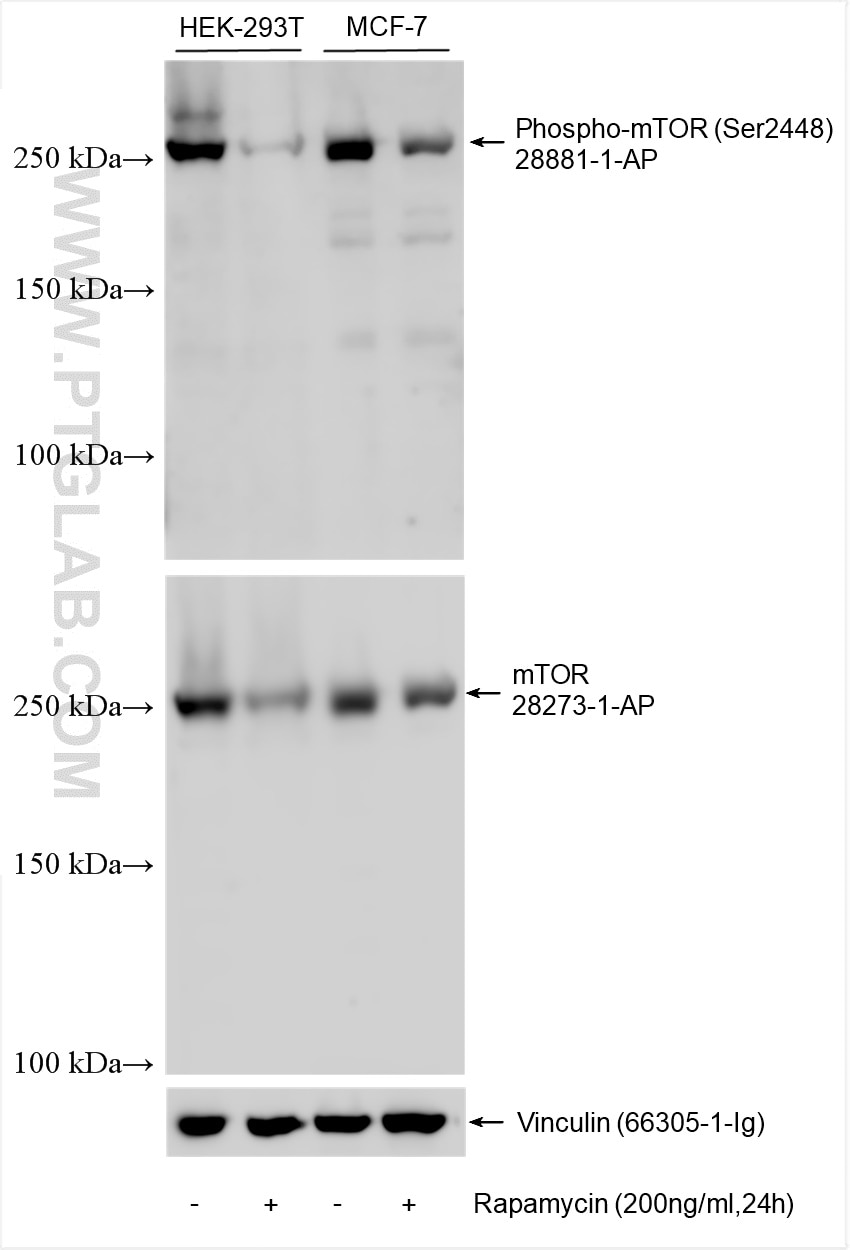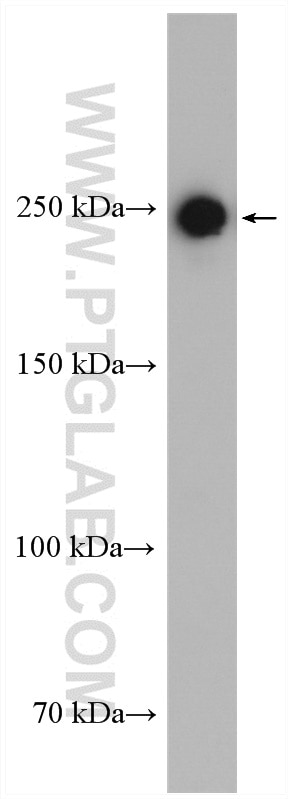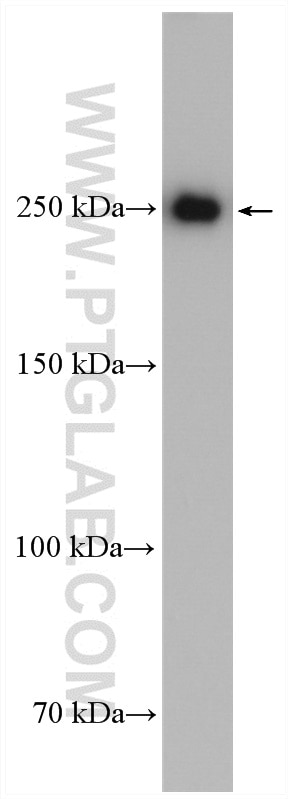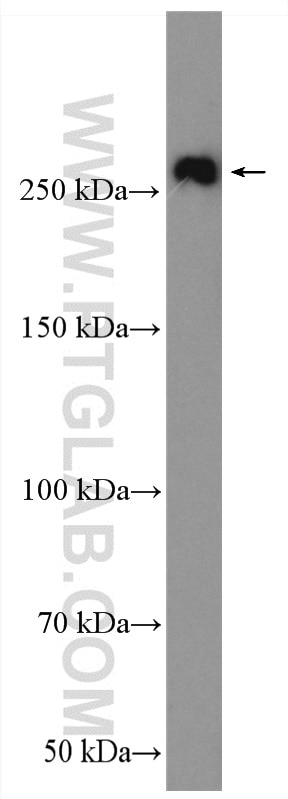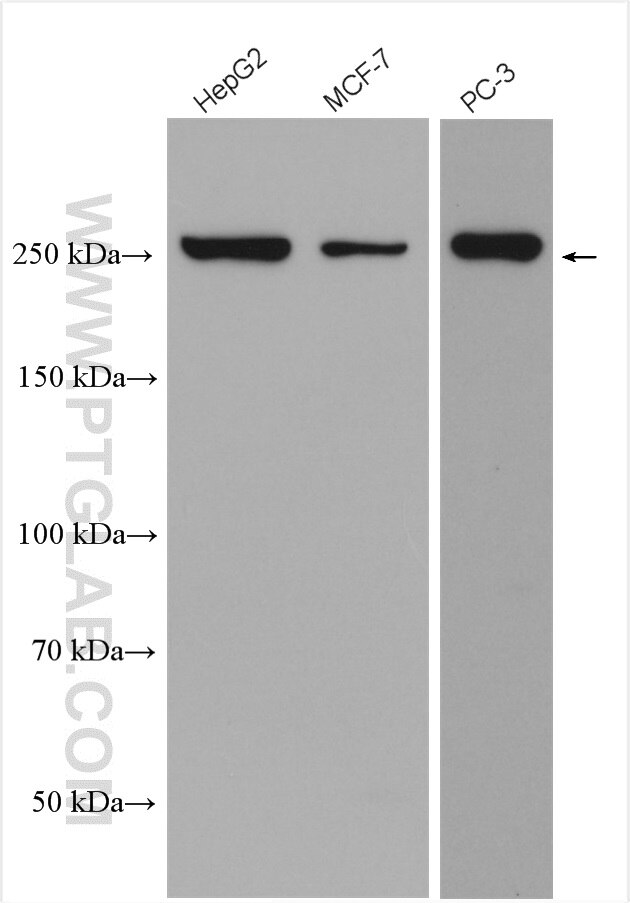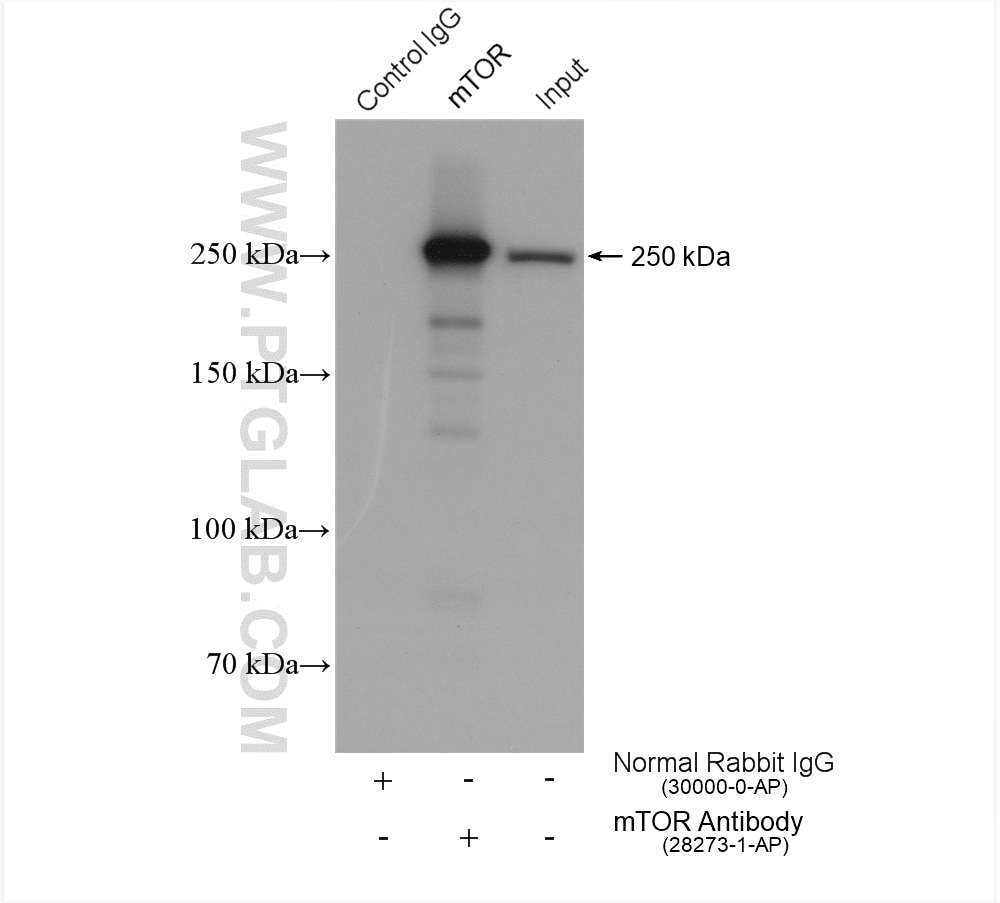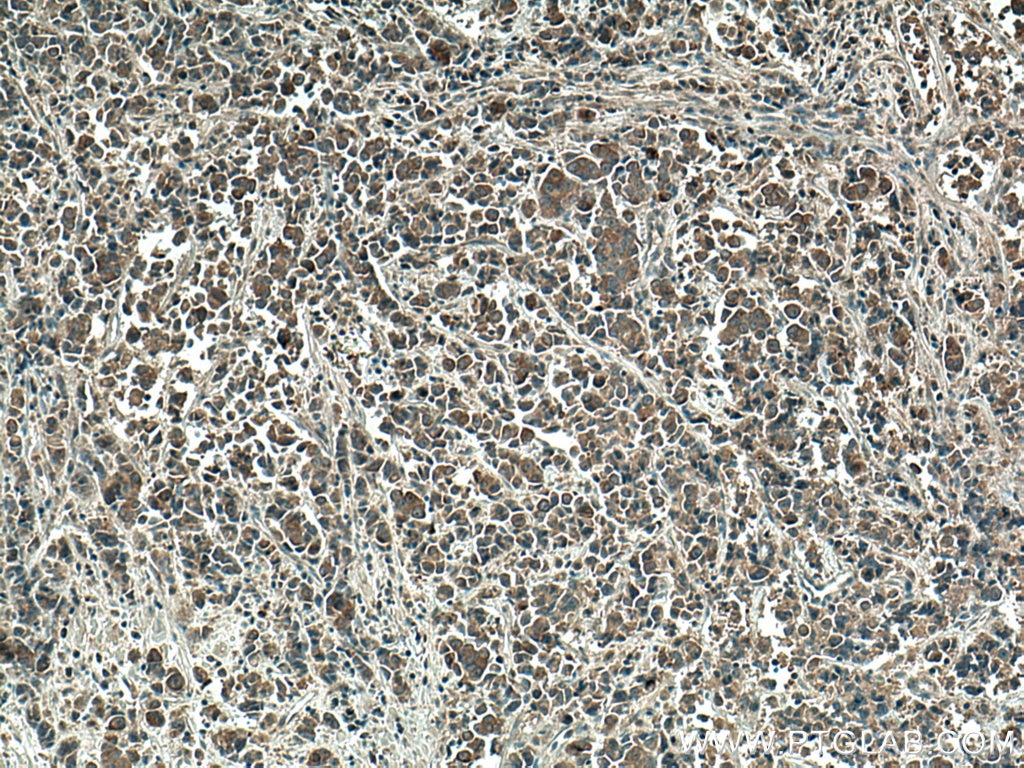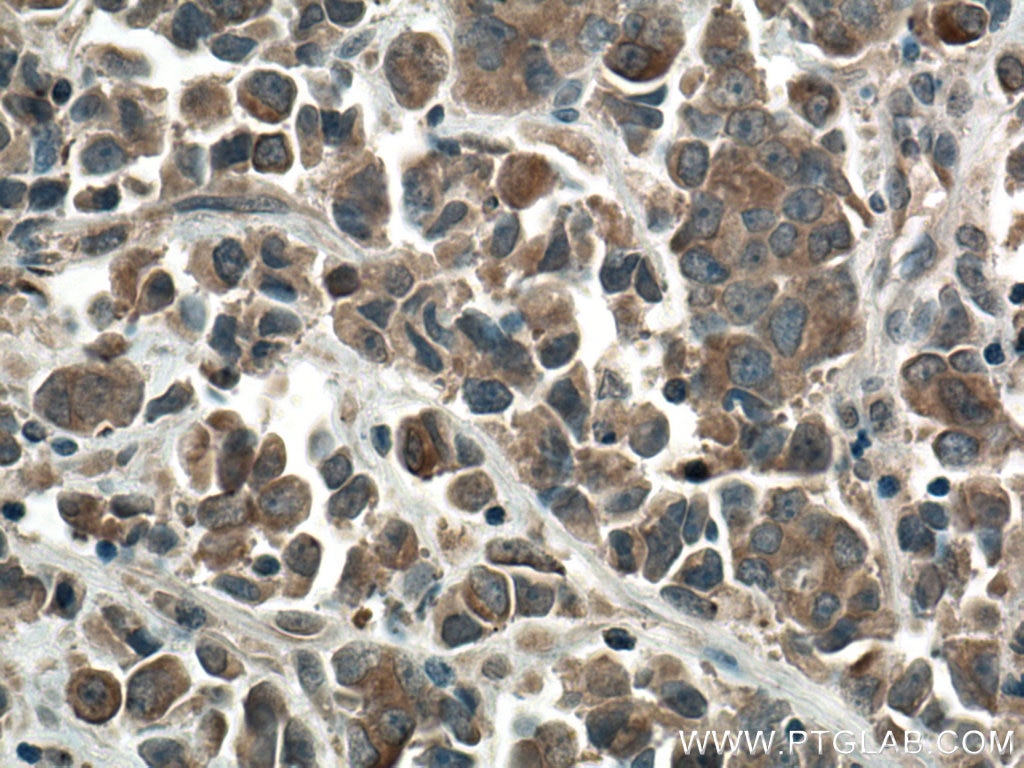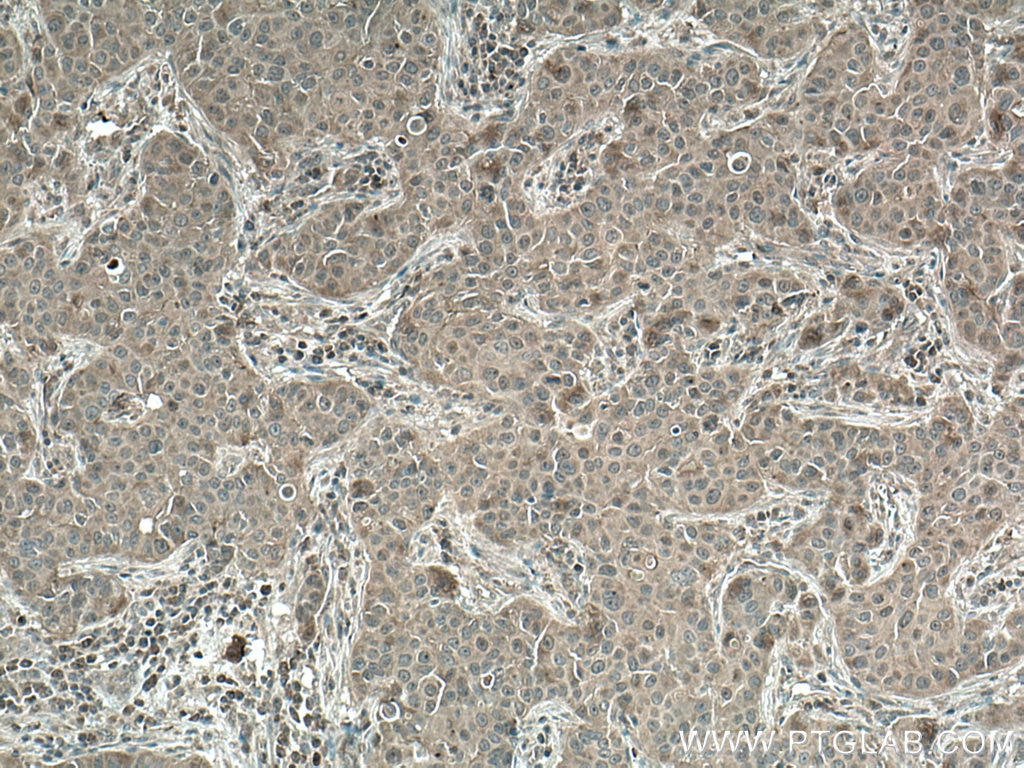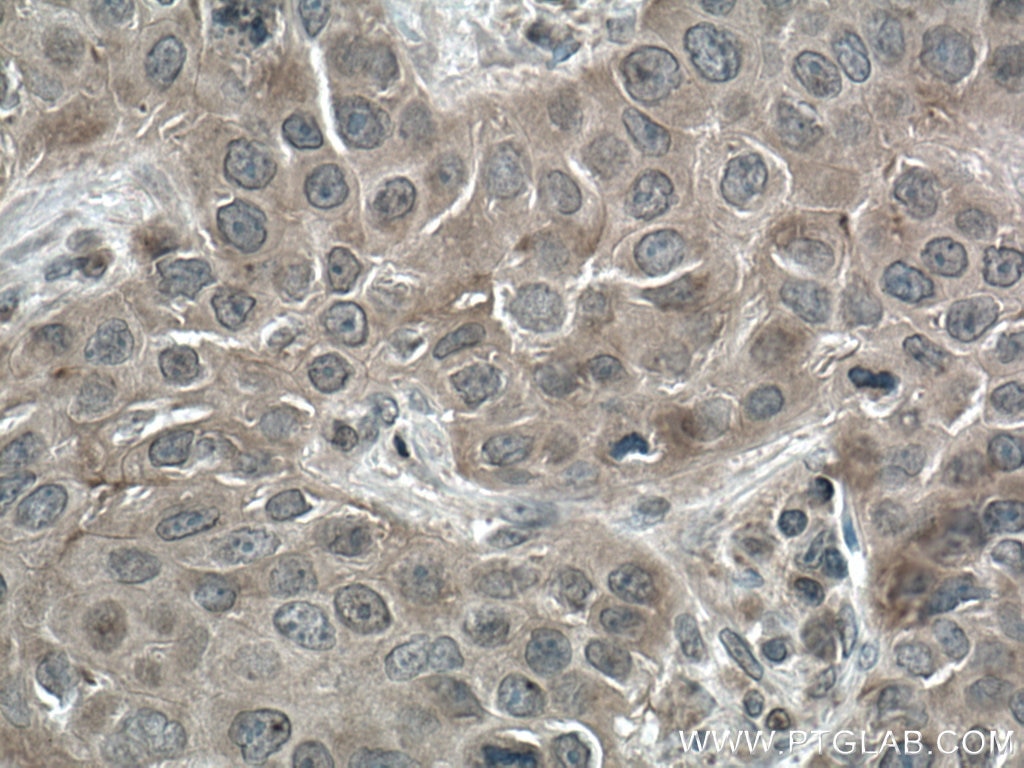- Featured Product
- KD/KO Validated
mTOR Polyklonaler Antikörper
mTOR Polyklonal Antikörper für IF, IHC, IP, WB, ELISA
Wirt / Isotyp
Kaninchen / IgG
Getestete Reaktivität
human und mehr (5)
Anwendung
WB, IP, IHC, IF, Cell treatment, ELISA
Konjugation
Unkonjugiert
Kat-Nr. : 28273-1-AP
Synonyme
Galerie der Validierungsdaten
Geprüfte Anwendungen
| Erfolgreiche Detektion in WB | HeLa-Zellen, HepG2-Zellen, MCF-7-Zellen, PC-3-Zellen |
| Erfolgreiche IP | HeLa-Zellen |
| Erfolgreiche Detektion in IHC | humanes Prostatakarzinomgewebe, humanes Mammakarzinomgewebe Hinweis: Antigendemaskierung mit TE-Puffer pH 9,0 empfohlen. (*) Wahlweise kann die Antigendemaskierung auch mit Citratpuffer pH 6,0 erfolgen. |
| Erfolgreiche Detektion in IF | HeLa-Zellen, HepG2-Zellen |
Empfohlene Verdünnung
| Anwendung | Verdünnung |
|---|---|
| Western Blot (WB) | WB : 1:2000-1:10000 |
| Immunpräzipitation (IP) | IP : 0.5-4.0 ug for 1.0-3.0 mg of total protein lysate |
| Immunhistochemie (IHC) | IHC : 1:50-1:500 |
| Immunfluoreszenz (IF) | IF : 1:50-1:500 |
| It is recommended that this reagent should be titrated in each testing system to obtain optimal results. | |
| Sample-dependent, check data in validation data gallery | |
Veröffentlichte Anwendungen
| KD/KO | See 1 publications below |
| WB | See 73 publications below |
| IHC | See 3 publications below |
| IF | See 1 publications below |
Produktinformation
28273-1-AP bindet in WB, IP, IHC, IF, Cell treatment, ELISA mTOR und zeigt Reaktivität mit human
| Getestete Reaktivität | human |
| In Publikationen genannte Reaktivität | human, Affe, Huhn, Maus, Ratte, Rind |
| Wirt / Isotyp | Kaninchen / IgG |
| Klonalität | Polyklonal |
| Typ | Antikörper |
| Immunogen | mTOR fusion protein Ag28395 |
| Vollständiger Name | FK506 binding protein 12-rapamycin associated protein 1 |
| Berechnetes Molekulargewicht | 289 kDa |
| Beobachtetes Molekulargewicht | 250-289 kDa |
| GenBank-Zugangsnummer | NM_004958 |
| Gene symbol | FRAP1 |
| Gene ID (NCBI) | 2475 |
| Konjugation | Unkonjugiert |
| Form | Liquid |
| Reinigungsmethode | Antigen-Affinitätsreinigung |
| Lagerungspuffer | PBS mit 0.02% Natriumazid und 50% Glycerin pH 7.3. |
| Lagerungsbedingungen | Bei -20°C lagern. Nach dem Versand ein Jahr lang stabil Aliquotieren ist bei -20oC Lagerung nicht notwendig. 20ul Größen enthalten 0,1% BSA. |
Hintergrundinformationen
MTOR, also named as FRAP1, FRAP, FRAP2 and RAPT1, belongs to the PI3/PI4-kinase family. MTOR is a Ser/Thr protein kinase that functions as an ATP and amino acid sensor to balance nutrient availability and cell growth. MTOR is kinase subunit of both mTORC1 and mTORC2, which regulate cell growth and survival in response to nutrient and hormonal signals. mTORC1 is activated in response to growth factors or amino-acids. mTORC2 is also activated by growth factors, but seems to be nutrient-insensitive. mTORC2 seems to function upstream of Rho GTPases to regulate the actin cytoskeleton, probably by activating one or more Rho-type guanine nucleotide exchange factors. mTORC2 promotes the serum-induced formation of stress-fibers or F-actin. MTOR has a calculated molecular mass of 289 kDa, and always can be detected at about 250 kDa due to some modifications (PMID: 14578359).
Protokolle
| Produktspezifische Protokolle | |
|---|---|
| WB protocol for mTOR antibody 28273-1-AP | Protokoll herunterladen |
| IHC protocol for mTOR antibody 28273-1-AP | Protokoll herunterladen |
| IF protocol for mTOR antibody 28273-1-AP | Protokoll herunterladen |
| IP protocol for mTOR antibody 28273-1-AP | Protokoll herunterladen |
| Standard-Protokolle | |
|---|---|
| Klicken Sie hier, um unsere Standardprotokolle anzuzeigen |
Publikationen
| Species | Application | Title |
|---|---|---|
Proc Natl Acad Sci U S A Heterozygous LRP1 deficiency causes developmental dysplasia of the hip by impairing triradiate chondrocytes differentiation due to inhibition of autophagy | ||
J Nanobiotechnology Regulating immune memory and reversing tumor thermotolerance through a step-by-step starving-photothermal therapy | ||
Int J Mol Sci Piperine Improves Lipid Dysregulation by Modulating Circadian Genes Bmal1 and Clock in HepG2 Cells. | ||
Free Radic Biol Med Advanced oxidation protein products impair autophagic flux in macrophage by inducing lysosomal dysfunction via activation of PI3K-Akt-mTOR pathway in Crohn's disease. | ||
Aging (Albany NY) UPF1 impacts on mTOR signaling pathway and autophagy in endometrioid endometrial carcinoma. | ||
Biochem Pharmacol TANGO1 interacts with NRTN to promote hepatocellular carcinoma progression by regulating the PI3K/AKT/mTOR signaling pathway |
Rezensionen
The reviews below have been submitted by verified Proteintech customers who received an incentive forproviding their feedback.
FH Tianyi (Verified Customer) (01-12-2024) | Antigen retrieval in TE buffer, incubated with AF594 at RT for 2h.
|
